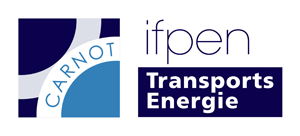 CONNECTED mobility
CONNECTED mobility
Our networks
EUROPEAN NETWORKS
POLIS: a network supporting innovation in the local transport sector
IIFPEN is part of POLIS, a network of around 80 members including towns/cities, European regions and research players set up to support the development of innovative and sustainable technologies and policies in the local transport sector. The POLIS network fosters the exchange of experiences and knowledge transfer between local and regional authorities throughout Europe via working groups, events and research partnerships funded by the European Commission. POLIS is one of the leading points of contact for European institutions relating to issues surrounding air quality and mobility.
CollaborationS WITH REGIONS
Atmo Auvergne Rhône-Alpes
Atmo Auvergne-Rhône-Alpes is the observatory approved by the French Ministry for the Ecological Transition for air quality surveillance and information in the Auvergne-Rhône-Alpes region. It is working with IFPEN on these issues.
> Access the open data portal on air quality in the AURA region
Understanding the evolution of mobility in the Ile-de-France region
A partnership has been put in place between IFPEN, Paris Nanterre University and Paris Ouest La Défense (POLD). Initiated within the framework of the Territoires d’innovation de grande ambition (TIGA, Ambitious Demonstrators and Innovative Territories) initiative for Ile-de-France, ”Construire au futur, habiter au futur“ (Building in the future, Living in the future), the aim of this partnership is to capture, analyze and model mobility data for the Paris Ouest La Défense area in order to better understand and anticipate work-related journeys. The ultimate objective is to create a genuine “mobility observatory”: a dynamic map of flows to and from around thirty or so third places across the territory, making it possible to propose services and timetables adapted to users, while facilitating interconnections between the different sites.
In addition, IFPEN and around thirty other players active in the mobility sector in the Ile-de-France region have joined forces to analyze the transport habits of the Greater Paris region’s residents using surveys. The Mobilité Île-de-France collective wanted to share its past and future findings with the general public and set up a site web for the purpose. IFPEN contributes data from its bicycle mobility observatory.
COLLABORATIVE PROJECTS
PEPR MOBIDEC: “Digitization and Decarbonizaton of Mobilities”
IFPEN and Gustave Eiffel University are joint leaders of one of the programs set up within the context of France 2030 French priority research programs and equipment initiative, the PEPR MOBIDEC dedicated to the digitization and decarbonization of mobilities. The purpose of this PEPR is to understand and anticipate the mobility of goods and people, to help collect, structure and interpret mobility data, and to offer decision-making tools to simulate in advance the impact of public policies or assess the relevance of new transport provision.
Predict’Air: a dynamic and predictive mobility observatory
Launched in 2024 for a period of three years as part of the “Démonstrateurs d'IA frugale pour la transition écologique des territoires” (Frugal AI demonstrators for the ecological transition of territories) program, and led by the Établissement public territorial Paris Ouest la Défense (POLD) in partnership with IFPEN, Citepa, Orange and Air&D, Predict'Air aims to develop a dynamic and predictive observatory of mobility and its impacts on air and climate. AI is used to process the large volume of telephone tracking data and provide services to quantify the footprint of mobility on climate and air quality on a daily basis, in order to support the decisions of public authorities.
AMELIA: AI to support air quality and noise reduction
Launched by start-up Waltr in 2024 for a period of three years as part of the “Frugal AI demonstrators for the ecological transition of territories” program, in partnership with IFPEN, Gustave Eiffel University, Bruitparif and the Établissement public territorial Paris Est Marne & Bois (PEMB), AMELIA aims to use AI in order to better monitor and reduce air pollution and noise. The project teams are developing tools for mapping mobility and the environment, with low computing and storage costs, to support regional planning.
ELABORATOR: for sustainable mobility in Europe
The european ELABORATOR project (The European Living Lab on Designing Sustainable Urban Mobility Towards Climate Neutral Cities),launched in June 2023 for a period of four years and coordinated by the ICCS (Institute of communication and computer systems, Greece) brings together 38 partners. IFPEN is one of a number of research centers taking part in it. This new project associated with the objective of the European Union’s “Cities” mission is aimed at developing a holistic approach for the planning, design, implementation and roll-out of innovations and specific interventions for safe, inclusive and sustainable urban mobility. Various actions are being conducted in six Lighthouse cities (Milan, Copenhagen, Helsinki, Issy-les-Moulineaux, Zaragoza and Trikala) and six Follower cities (Lund, Liberec, Velejne, Ioanninna, Split and Krusevac) across Europe. IFPEN’s teams are responsible for using mobility data collected in Issy-les-Moulineaux to help define monitoring indicators.
This project received funding from the European Union’s H2020 research and innovation program through grant agreement 101103772.
UPPER: for climate-neutral smart cities
The European UPPER (Unleashing the Potential of Public transport in EuRope), project, launched in January 2023 for a period of four years and coordinated by the UITP (Union internationale des transports publics - International Association of Public Transport), brings together 41 partners. They include research centers such as IFPEN, as well as bodies associated with public transport (urban communities, etc.). This project associated with the objectives of the European Union’s “Cities” mission “ promotes the increased use of urban public transport through an expanded, more attractive provision. It is hoped that UPPER will increase the use of public transport by 30% through the implementation of 84 measures in the Living Labs (Valencia, Rome, Ile de France, Oslo and Mannheim) and Twinning Cities (Lisbon, Leuven, Hannover Region, Budapest and Thessaloniki) in line with local challenges. IFPEN is responsible for developing a digital twin for mobility and analyzing the carbon footprint across the Versailles Grand Parc urban community area.
This project received funding from the European Union’s H2020 research and innovation program through grant agreement 101095904
LENS: for cleaner, quieter mobility
The European LENS (L-vehicles Emissions and Noise mitigation Solutions) project, which was launched in September 2022 and will continue through to August 2025, implements initiatives and innovations aimed at reducing the noise and emissions associated with mobility, while proposing solutions to improve the performance of future vehicles and minimize the impact of existing vehicles.
This project received funding from the European Union’s H2020 research and innovation program through grant agreement 101056777.
OLGA: for sustainable and smart mobility in airport zones
The European OLGA (hOListic Green Airport) project, launched in 2021 by a consortium of airports (Roissy Charles-de-Gaulle, Zagreb in Croatia, Malpensa in Italy and Cluj in Romania), airlines, handling companies, research institutes and SMEs, is conducting studies to reduce airside and landside emissions, improve terminal energy efficiency and promote green construction and the use of new fuels. The associated innovation projects also prioritize the preservation of biodiversity, air quality, noise mitigation and waste reduction.
This project received funding from the European Union’s H2020 research and innovation program through grant agreement
MAGPIE: for sustainable and smart mobility in airport zones
The MAGPIE (sMArt Green Ports as Integrated Efficient multimodal hubs) consortium was set up in 2021. It is made up of Rotterdam port, DeltaPort (Lower Rhine region, Germany), HAROPA (Le Havre, Rouen, Paris) and Sines (Portugal), alongside research institutes and more than 30 companies who are working together to test smarter, more sustainable port logistics solutions. Some ten pilot projects are testing the use of new fuels and energy vectors (batteries, hydrogen, ammonia, BioLNG and methane) throughout the value chain, as well as the digitization, automation and autonomization of port transport.
This project received funding from the European Union’s H2020 research and innovation program through grant agreement 101036594.







